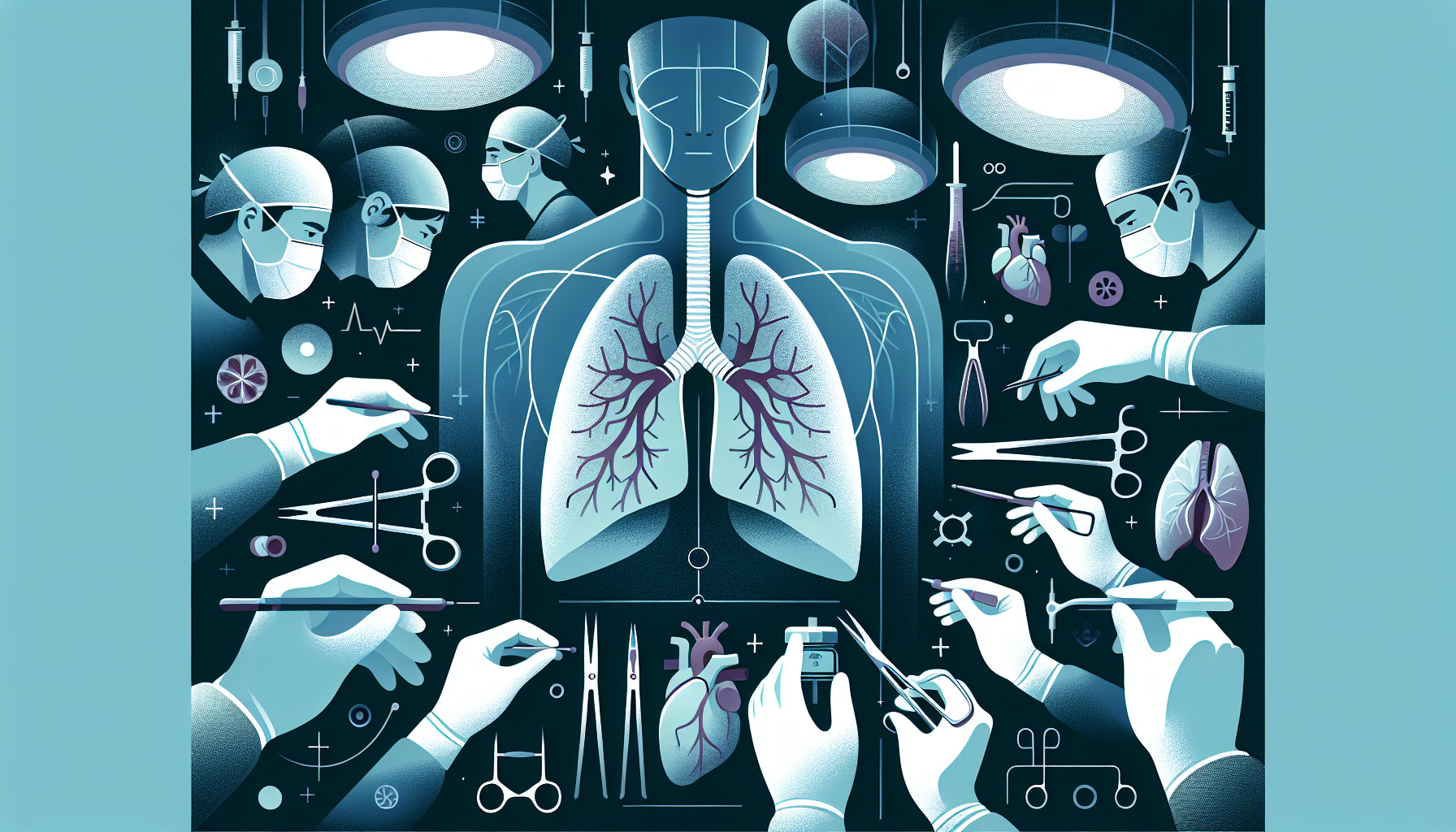Our Summary
This paper examines the issue of frailty in patients who need lung transplants. Frailty is common among these patients and is linked to higher death rates both before and after the transplant. The study looks at various ways to measure frailty, focusing primarily on physical frailty. The good news is that physical frailty can be improved through rehabilitation both before and after the transplant, and even more so six months after the transplant. The paper suggests that being physically frail should not automatically disqualify someone from getting a lung transplant. Instead, doctors should focus on improving the aspects of frailty that can be changed or improved.
FAQs
- What is the connection between frailty and lung transplants?
- Can physical frailty be improved in patients needing lung transplants?
- Should physical frailty automatically disqualify someone from getting a lung transplant?
Doctor’s Tip
One helpful tip a doctor might give a patient about lung transplant is to focus on improving physical frailty through rehabilitation before and after the transplant. This can help improve outcomes and increase the chances of a successful transplant. It’s important to work with a healthcare team to create a personalized rehabilitation plan and stick to it to improve overall health and recovery.
Suitable For
Patients who are typically recommended for lung transplant are those who have end-stage lung disease and have exhausted all other treatment options. This includes patients with conditions such as cystic fibrosis, idiopathic pulmonary fibrosis, chronic obstructive pulmonary disease (COPD), and pulmonary hypertension. These patients often have severe symptoms such as shortness of breath, coughing, and fatigue, and have a significantly decreased quality of life.
In addition, patients who are younger and have fewer comorbidities are typically better candidates for lung transplant. Patients who are able to comply with post-transplant medications and follow-up care, as well as those who have a strong support system in place, are also more likely to be recommended for a lung transplant.
Overall, the decision to recommend a patient for a lung transplant is made on a case-by-case basis, taking into consideration the patient’s overall health, age, comorbidities, and ability to comply with post-transplant care.
Timeline
Before lung transplant:
- Patient is evaluated by a transplant team to determine if they are a suitable candidate for a lung transplant
- Patient undergoes a series of tests and assessments to assess their overall health and readiness for surgery
- Patient may need to wait on a transplant list for a suitable donor
- Patient may experience worsening symptoms and decline in health while waiting for a transplant
- Patient may undergo pre-transplant rehabilitation to improve their physical and mental health before surgery
After lung transplant:
- Patient undergoes the lung transplant surgery and begins the recovery process in the hospital
- Patient may experience complications such as infection, rejection, or organ failure post-surgery
- Patient is closely monitored by medical team for signs of complications and to ensure proper healing
- Patient undergoes post-transplant rehabilitation to regain strength and function
- Patient may experience improvements in lung function and overall health following the transplant
- Patient will need to take immunosuppressant medications for the rest of their life to prevent rejection of the new lung
Overall, the timeline for a patient before and after a lung transplant can vary depending on individual circumstances and the success of the surgery. It is important for patients to work closely with their medical team to ensure a successful outcome and long-term health.
What to Ask Your Doctor
What is the success rate of lung transplants in patients who are considered physically frail?
How can physical frailty be assessed in a patient who needs a lung transplant?
Are there any specific rehabilitation programs or exercises that can help improve physical frailty before and after the transplant?
What are the potential risks and complications associated with a lung transplant in a physically frail patient?
How long is the recovery process for a physically frail patient after a lung transplant?
Are there any alternative treatments or therapies that may be considered for a physically frail patient instead of a lung transplant?
How often will follow-up appointments be needed to monitor physical frailty and overall health after the transplant?
Are there any lifestyle changes or modifications that should be made to improve the chances of a successful lung transplant in a physically frail patient?
What is the expected prognosis for a physically frail patient who undergoes a lung transplant?
Are there any support groups or resources available for physically frail patients who are considering or have undergone a lung transplant?
Reference
Authors: Varughese R, Rozenberg D, Singer LG. Journal: Curr Opin Organ Transplant. 2020 Jun;25(3):274-279. doi: 10.1097/MOT.0000000000000762. PMID: 32332199
